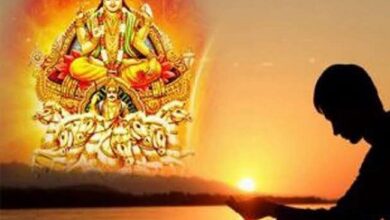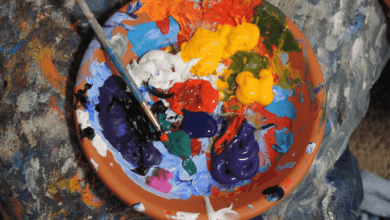Experience the essence of Prešeren Day in Slovenia, where poetry, art, and heritage unite in a remarkable celebration of national pride. Join the festivities!
Related:
QUICK FACTS:
- Date: February 8th
- Main Components: Prešeren Awards, cultural events, free entry to museums and galleries
- Popularity: One of the most widely celebrated Slovenian holidays
- Pairings: Slovenian national anthem, national coat of arms, Triglav mountain
- Variations: Prešeren’s birthday on December 3
Introduction
Prešeren Day is a Slovenian national holiday that takes place on February 8 each year. The Slovenian cultural holiday also takes place in other Slovene populated areas around the globe. The annual holiday celebrates the success of Slovenian poet France Prešeren and falls on the date of his death. Prešeren is regarded as the greatest Slovene classical author and the country’s national poet. He was the first poet to raise Slovenian to the level of artistic language, thus placing himself alongside the greatest European romantic poets. His poetry expresses his personal feelings, views, and experiences, as well as his love for his country, language, and culture. He also addressed the themes of freedom, justice, patriotism, nationalism, humanism, and democracy. He influenced many Slovenian writers and artists who followed him. He is considered a national symbol and a source of inspiration for Slovenians.
The significance of Prešeren Day and Prešeren Awards in Slovenian culture is immense. Prešeren Day is a public holiday and a work-free day. It pays tribute and is dedicated to the memory of Prešeren and his contribution to Slovenian literature, language, and identity. On this day, the Prešeren Awards and the Prešeren Fund Awards, the highest Slovenian recognitions for cultural achievements, are conferred. Various cultural events are held across the country and abroad. All state and municipal museums and galleries offer free entry to visitors. The holiday is celebrated not only by individuals but also by communities, institutions, and organizations. The main idea of this article is to explore Prešeren’s life, works, and legacy in more detail and to highlight the importance and relevance of Prešeren Day for Slovenian culture today.
Related: Sami National Day In Finland 2023
Early Life and Education
Prešeren was born on December 3, 1800 in the village of Vrba in Gorenjska, north of Slovenia. He came from a peasant family and had six siblings. He attended primary school in Ribnica and later in Ljubljana, the capital of Slovenia. He showed an interest in poetry and literature from a young age and was influenced by classical authors such as Homer, Virgil, and Ovid. He also learned several languages, including German, Latin, Greek, Italian, and French. He enrolled at the University of Vienna in 1819 to study law. There he met Matija Čop, a linguist and philosopher who became his close friend and mentor. Čop encouraged Prešeren to write poetry in Slovene and introduced him to the works of European romantic poets such as Byron, Shelley, and Goethe.
Friendship with Matija Čop and Julia Primic
Prešeren’s friendship with Čop was one of the most important factors that shaped his poetic development. They shared their intellectual and artistic interests and exchanged ideas and opinions. They also traveled together to various places in Europe. Čop helped Prešeren improve his style, form, and content of his poetry. He also suggested him to write a cycle of sonnets that would express his unrequited love for Julia Primi.
Julia Primic was a wealthy and beautiful woman from Ljubljana who caught Prešeren’s eye in 1833. He fell deeply in love with her and dedicated many of his love poems to her. His most famous works inspired by Julia are Sonnets of Unhappiness (Sonetje nesreče) and A Wreath of Sonnets (Sonetni venec). However, Julia did not reciprocate his feelings and married another man in 1839. This broke Prešeren’s heart and caused him great sadness.
Professional Career and Personal Struggles
Prešeren completed his law studies in 1828 and returned to Ljubljana to work as a lawyer’s assistant. He faced many difficulties in his profession due to the political and social situation in Slovenia, which was then part of the Austrian Empire. He also faced censorship and opposition from the authorities and the public for his poetry, which was considered too radical and immoral. He suffered from depression, alcoholism, and loneliness. He had several relationships with different women and fathered three children out of wedlock. He died on February 8, 1849 at the age of 48 from liver cirrhosis.
Related: Ronald Reagan Day In California 2023
Literary Works and Legacy
Prešeren is widely regarded as the greatest Slovenian poet and the founder of modern Slovenian literature. He wrote poems in various forms and genres, such as sonnets, ghazals, ballads, epics, elegies, and satires. He wrote mostly in Slovenian, but also wrote several poems in German. His poetry is rich in imagery, symbolism, and musicality. He used various poetic devices, such as rhyme, meter, alliteration, assonance, and anaphora. He also experimented with different poetic structures, such as the sonnet corona (a cycle of 15 sonnets linked by the last line of each sonnet becoming the first line of the next one).
Prešeren’s poetry reflects his personal feelings, views, and experiences, as well as his love for his country, language, and culture. He also addressed the themes of freedom, justice, patriotism, nationalism, humanism, and democracy. He expressed his hope for a united and independent Slovenia and a peaceful and harmonious Europe. He also criticized the oppression and injustice of the Austrian regime and the social and moral decay of his time. He advocated for the dignity and rights of all people, regardless of their class, gender, or ethnicity. He also celebrated the beauty and diversity of nature and human creativity.
Prešeren influenced many Slovenian writers and artists who followed him. Some of his most notable successors are Ivan Cankar, Oton Župančič, Anton Aškerc, Dragotin Kette, Josip Murn Aleksandrov, Fran Levstik, Simon Jenko, Janez Trdina etc. His poetry has been translated into many languages and has inspired many adaptations and interpretations. He is considered a national symbol and a source of inspiration for Slovenians. His portrait is printed on the Slovenian 2-euro coin. His birthplace in Vrba is a museum dedicated to his life and work. His statue stands in the main square of Ljubljana. His poem A Toast (Zdravljica) is the national anthem of Slovenia. The seventh verse of this poem is engraved on the national coat of arms. The Triglav mountain that he admired so much is also a national symbol.
Conclusion
Prešeren Day is a Slovenian national holiday that celebrates the life, works, and legacy of France Prešeren. Prešeren was the greatest Slovenian poet and the founder of modern Slovenian literature. He wrote poetry in Slovene that expressed his personal feelings, views, and experiences, as well as his love for his country, language, and culture. He also addressed the themes of freedom, justice, patriotism, nationalism, humanism, and democracy. He influenced many Slovenian writers and artists who followed him. He is considered a national symbol and a source of inspiration for Slovenians.
Prešeren Day is a public holiday and a work-free day that pays tribute to Prešeren’s contribution to Slovenian literature, language, and identity. On this day, the Prešeren Awards are conferred to recognize the cultural achievements of Slovenians. Various cultural events are held across the country and abroad. All state and municipal museums and galleries offer free entry to visitors. The holiday is celebrated not only by individuals but also by communities, institutions, and organizations.
Prešeren Day is one of the most widely celebrated Slovenian holidays that reflects the importance and relevance of Prešeren’s poetry for Slovenian culture today. Prešeren’s poetry is not only a source of artistic expression but also a source of national pride and identity. Prešeren’s poetry is not only a part of history but also a part of present and future. Prešeren’s poetry is not only for Slovenians but also for anyone who appreciates beauty, creativity, and humanity.



